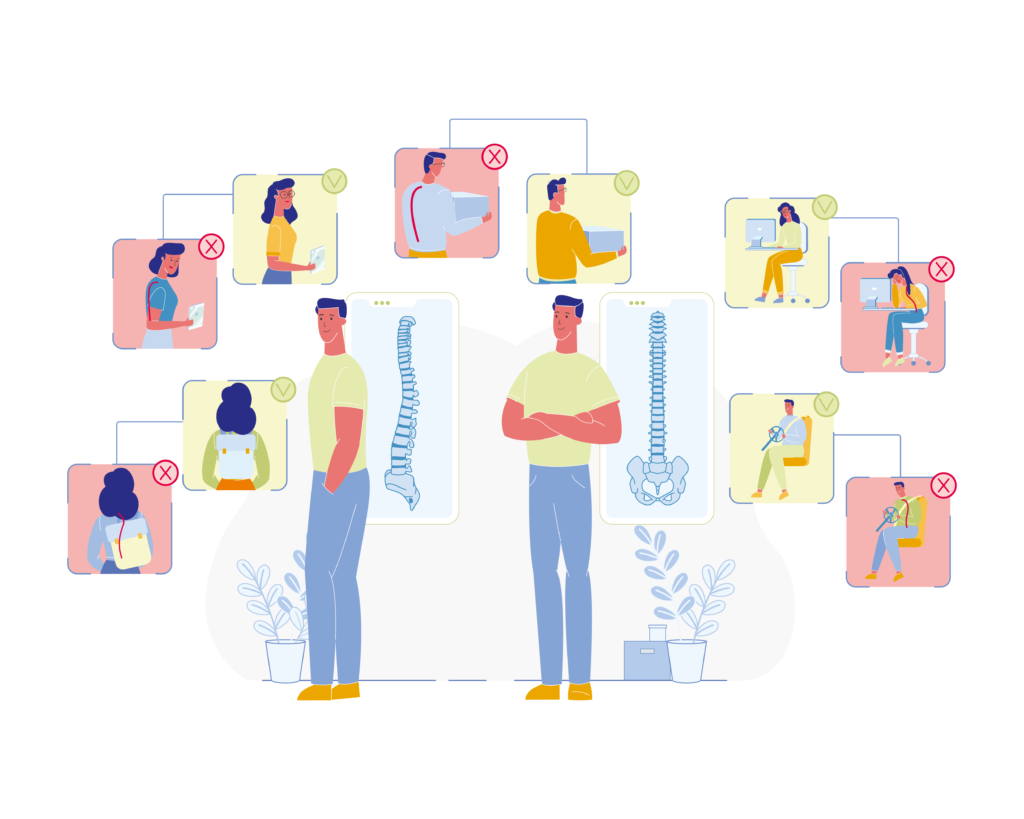Musculoskeletal disorders - am I at risk?

Regardless of your profession or sector of activity, you may suffer from muscle and joint pain, and even discomfort linked to your professional activity.
This type of pain has a name: Musculoskeletal disorders (MSD)
Musculoskeletal disorders (MSD) are pathologies that appear gradually, affecting the joints, muscles and tendons of your body’s upper and lower limbs.
In recent years, we have seen a constant increase in MSDs, and in recent months the disorders have begun to appear in people working from home. As of 2015, MSDs account for 87% of occupational illnesses that result in sick leave.
This sudden increase in MSD can be explained by a renewed interest on the part of companies. MSDs have long been underestimated in statistics on occupational illnesses and instead thought of as personal problems.
How do they manifest?
The symptoms of MSDs are pain, mainly localised on the trunk or upper limbs. These include lumbago (lower back pain), neck pain, rotator cuff syndrome in the shoulder, carpal tunnel syndrome (affecting the wrists) and epicondylitis (the elbow). MSDs can also cause stiffness in the body, redness, swelling or loss of strength.
What can I do to prevent them from appearing?
The risk factors responsible for the onset of Musculoskeletal Disorders should be studied in relation to your situation and professional activity. There may be several causes, but three recurring factors are reported by health professionals and more particularly since the increase of employees working from home:
- Poorly positioned workstation
- Ill-suited work equipment
- Inappropriate posture
At an individual level, preventing their onset or relieving the first symptoms is simple! Adopt a daily routine that will relieve excessive strain on your muscles and correct any positions that are too restrictive for your body.
How to go about it: by performing simple exercises that will help you promote good posture and relieve pain, thereby limiting the onset of musculoskeletal disorders.
If the pain persists, we advise you to speak to a health professional, who will be able to provide you with support (workstation adjustment, work leave).
